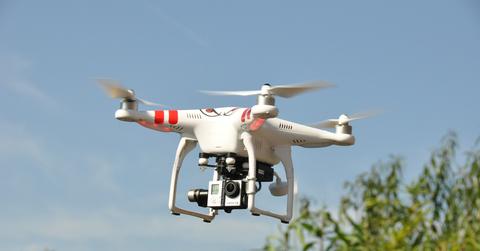5 Sustainable Inventions That Could Save The Planet
We've sought industrious means to solve cultural ills ever since we started walking upright. But with the stakes way up, researchers are scrambling to counteract the damage we’ve caused before it's too late.
Updated May 22 2019, 4:34 p.m. ET
Humans have sought industrious means to solve cultural ills ever since we started walking upright. But lately, the stakes have gone way up.
We’re reaching capacity for the human population, and that’s bringing with it water crises, food shortages, and sped-up climate change that may have us facing increasingly violent storms and raised water levels worldwide much sooner than anyone thought.
To meet these challenges, thinkers, scientists, researchers, engineers and even children are scrambling to figure out means to counteract the damage we’re causing. CNN recently rounded up five inventions that could be just what we need to tip the tables in our environmental favor. Here they are.
Drinkable ocean water
Approximately 783 million people, or 11 percent of humans on the planet, live without access to clean water for drinking, irrigation, and hundreds of other uses. Researchers in the United Kingdom seek to solve that problem. They have created a graphene sleeve out of carbon that can filter and desalinate ocean water, making it drinkable and effectively solving our freshwater crisis.
Large-scale desalination plants have been around for years, sure. But they’re pricey, not real great for the environment, and can actually hurt marine life. These grapheme sieves? Not so much.
A pollinating drone
What happens to the bees, happens to us.
We’ve all heard of the terrifying possibility that if we lose the planet’s best pollinators—honeybees—our food systems would come to a grinding halt. With 75 percent of crops worldwide grown with the help of bees, butterflies, and other pollinators, it brings the bee shortage in particular into sharp focus.
But what if we could use drones to pollinate flowers?
Japanese researchers aim to do just that. They’re in the testing phase with drones that carry pollen from plant to plant. So far they’ve only successfully pollinated a very large flower—but hopefully the trial can expand before it’s too late.
Biodegradable bullets
When the military is getting in the environmental game, you know it’s more than a fad.
The United States Army has requested proposals for biodegradable ammunition, which would replace existing rounds for training exercises and help clean up military facilities that the Environmental Protection Agency ranks among the most polluted sites in the country.
The biodegradable ammo would contain seeds that could grow plants to feed animals and remove soil contaminants while also digesting the biodegradable components of the rounds.
Plant-based plastics
Bags, food packaging and ponchos can now be made out of cassava, a cheap and prolific plant that grows like a weed all over Indonesia. Avani Eco was launched in 2014 by Kevin Kumala and currently makes four tons of cassava-based plastic products every single day.
Kumala is so sure of the safety of the products he makes, he proves it by regularly dissolving and drinking the items. What plastics CEO do you know who does that?
Hydrogen airplanes
The first internal combustion engine was created in 1806 by Francois Isaac de Rivaz and was powered by oxygen and hydrogen. Rivaz rolled out a vehicle powered by this new engine a year later. Now, more than two centuries after that, we’re reexamining the potential for hydrogen vehicles to change the landscape of polluting transportation devices.
Enter the HY4, a four-passenger aircraft running on hydrogen and oxygen alone that has a singular emission: water vapor. The German Aerospace Center is helping with development, and hopes to eventually create emission-free air taxis to bring people between cities sometime in the next few years.
